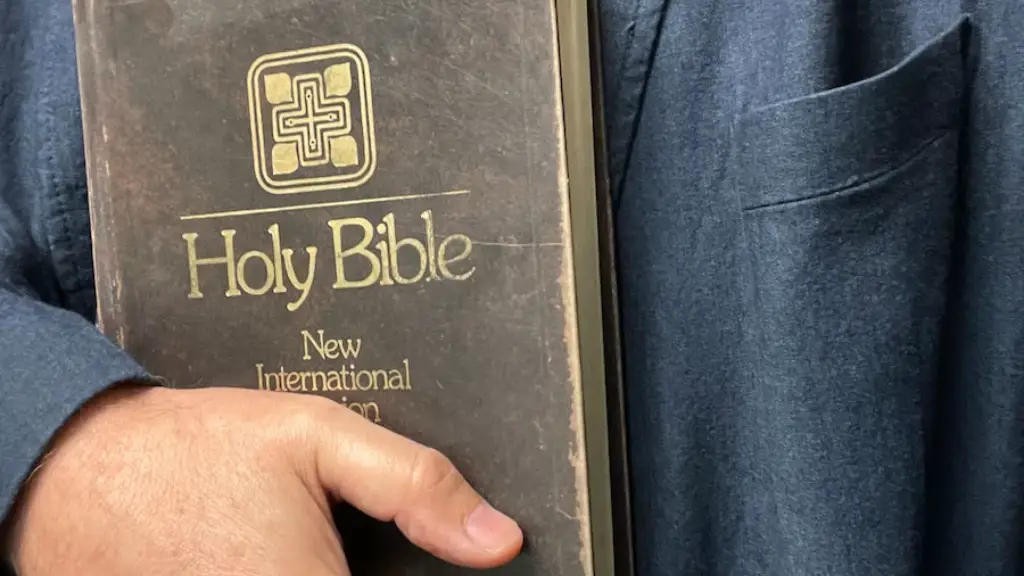With mentions throughout the bible, Four Horsemen are seen as figures of extreme importance in Christian beliefs. These Four Horsemen are presented in the bible in the Book of Revelation, specifically Revelation 6:1-8. According to the Bible, the four horsemen are symbolic entities that are seen to act as harbingers of different entities for the end times.
These Horsemen represent the four main scourges that man has suffered from since the very birth of civilization: Pestilence, Famine, Death and War, each riding on a horse of a different color. The four have been interpreted by theologians in many different ways. To some they are literal entities that appear in the End Times, while to others they are merely symbolic warnings of the coming of a great disaster.
The most common interpretation of the Four Horsemen is as messengers of the apocalypse. As written in the Bible, they represent four of the greatest scourges that mankind has ever faced. Each of the Horsemen has an associated color, and has been identified with a special power that is meant to bring ruin and destruction to the world.
In the first Seal, the Conqueror rides a white horse. This Conqueror is widely believed to refer to the Antichrist, who is seen as a false messiah that will come during the end times to lead a great army against the forces of good. The second Seal brings the Red Horse, a symbol of War that is meant to call forth the nations of the world to fight against one another. The third Seal is said to bring the Black Horse, with its rider being a symbol of Famine, meant to bring the destruction of crops and ruin the lives of many. The last Seal brings the pale horse of Death and the power to bring destruction to all life on Earth.
In some beliefs, the Four Horsemen of the Apocalypse are seen as a physical representation of the four kinds of destruction that mankind suffers from: War, Hunger, Pestilence, and Death. In other beliefs, the Horsemen are seen as aspects of God’s judgment, a symbol of his wrath in which he will punish those who rejected his ways. In a third interpretation, the Horsemen are seen as harbingers of a great cosmic event, the ending of all life on Earth.
Many modern theologians believe that the Horsemen in the Bible are not just physical figures, but also spiritual embodiments of destruction. They are seen as warning signs of the destruction of mankind should we fail to heed the warnings of the Bible, as well as an indication that the end times are near. No matter what interpretation is believed to be true, it is clear that the Four Horsemen of the Bible are a significant part of Christian mythology, and their mention in the Bible is a powerful reminder of the destruction that mankind will face should one fail to accept and follow the ways of the Lord.
History of the Horsemen
The origins of the Four Horsemen of the Apocalypse are unknown and uncertain. The most common explanation states that they are figures of verses from the Bible, specifically Revelation 6. But there have been theories suggesting other explanations. For instance, some historians believe that they were originally intended to depict the four elements: Fire, Earth, Air and Water, while others suggest the Four Horsemen of the Apocalypse were possibly inspired by the four humors of medieval medicine and the four seasons.
Whether or not these explanations and theories are correct, the Four Horsemen have become firmly entrenched in the religious and cultural realm for centuries, particularly as figures of destruction and chaos that must be avoided at all costs. This has led to them becoming important symbols in many religions and cultures around the world.
In recent times, the Four Horsemen have also become a popular theme in modern fiction, such as literature and films. From the film Constantine to the graphic novel The Sandman to the horror novel The Horseman, these figures have become a part of popular culture and have allowed people to explore their meaning and interpretations on a deeper level.
Linguistic Interpretations of the Horsemen
The Four Horsemen of the Apocalypse have also served as a source of inspiration and study for linguists and other language experts. By isolating and analyzing their names, linguists have been able to derive various meanings from the Horsemen’s names and the connections that can be made between them.
For instance, one linguist suggests that the name of the Third Horseman, Famine, can be divided into “fan” and “mene,” which combine to mean “to decrease” or “to take away.” This suggests that Famine, like the other Horsemen, is an entity that is meant to bring destruction and death, not only to humankind, but also to crops and other resources needed to sustain life.
Another linguist suggests that the phrase “Four Horsemen of the Apocalypse” could be translated as “four agents of destruction,” or simply “four destroyers,” thus emphasizing the role of the Horsemen as messengers of destruction and death.
In either case, linguists have been able to use their knowledge to get a better insight into the true meaning of the Horsemen, and the implications of the symbols for humankind.
Eschatological Interpretations
In Christian beliefs, the Four Horsemen are described as entities that are agents of the apocalypse, or the end of the world. Christianity sees them as preparatory figures for the arrival of the Antichrist, and their presence is seen as an indication that end times are near. In this interpretation, the four horsemen are seen as signs of God’s wrath, a warning to humanity that they will face destruction and judgment unless they repent and turn to him.
In some interpretations, the Horsemen are seen as divine beings, some even going so far to say that they are the actual gods that humans believed in before Christianity. In other interpretations, they are seen as “minor gods,” lesser divine entities that are responsible for minor disasters and evils that occur in the world.
The Horsemen have also been used as a symbol of sin, with each Horseman representing a different sin. In the first Seal, the white horse symbolizes pride, while the red horse symbolizes war, the black horse sorrow and famine, and the pale horse death.
In addition to this interpretation of the Horsemen as symbols of sin, some Christians view the Horsemen as symbols of the seven deadly sins. With pride, envy, wrath, sloth, greed, gluttony, and lust encompassed by the four symbolic figures, they become a representation of the ultimate perversion of humanity.
Modern Interpretations
In modern interpretations, the four horsemen are often seen as a symbol of human suffering, specifically the suffering that the world is going through in the current age. Many people view the four horsemen as a metaphor for the four modern scourges of the world: war, famine, disease, and death. They are seen as symbols of humanity’s failure to learn and grow from our mistakes and instead continue to cause suffering and destruction on a global scale.
This interpretation of the four horsemen has also been used in various works of fiction, with some works depicting the horsemen as actual entities that bring death and destruction. Others have used their names as metaphors for modern issues, such as environmental destruction and climate change.
Modern interpretations of the four horsemen also tend to downplay their eschatological significance, with the horsemen becoming less a symbol of divine judgment and more a representation of the suffering that humanity is inflicting upon itself. In this sense, they are seen as a reminder that humanity needs to learn to work together to put an end to our suffering, before it becomes too late to turn things around.
Symbolism of the Four Horsemen
The symbolism of the Four Horsemen of the Apocalypse is still heavily debated. Depending on the interpretation, the Horsemen can be seen as a warning of the end times, divine beings sent to bring judgment upon mankind, or simply symbols of the suffering and destruction that mankind will experience if they do not heed the warnings of the Bible.
Regardless of the interpretation, the Four Horsemen are an integral part of many religions and cultures, and are seen as figures of immense power and strength. It is this power that has caused them to be feared and respected, and to be seen as a reminder that we must all be mindful of the consequences of our actions for ourselves, for our fellow humans, and for the world as a whole.





